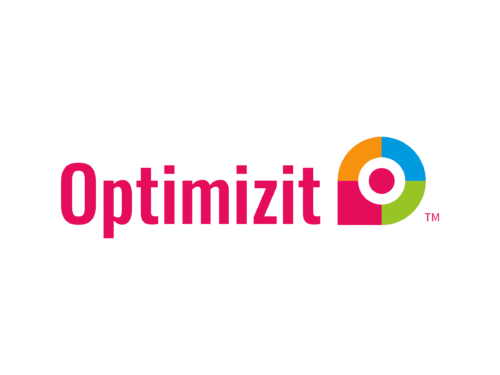In today’s ever-evolving digital landscape, private practice providers face various challenges to effectively market their services. With misinformation and myths surrounding digital marketing strategies, it can be difficult to decipher the truth. Our goal is to debunk some of the common digital marketing myths, allowing private practice providers to make informed decisions and maximize their online presence.
In this article, we will clarify misconceptions, provide you with factual information, and guide you on the path to success in your digital marketing endeavors. From social media to search engine optimization, we will expose the realities behind the most common digital marketing myths prevalent in the private practice industry. Armed with knowledge and proven strategies, you can overcome skepticism and enhance your digital marketing efforts for better results for your private practice business.
1. Myth: Social Media Marketing Doesn’t Benefit Private Practice Providers
Fact: Social media platforms are vital for building a strong online presence and nurturing relationships with your target audience. Irrespective of your specialty, social media provides opportunities to showcase your expertise, promote your practice, and engage with potential clients. The key to success lies in selecting the right platforms and developing a targeted social media strategy.
Understand the demographics and preferences of your target audience to determine the most appropriate social media platforms. Then, tailor your content to address their concerns and interests. For instance, consider sharing valuable tips, insights, and patient testimonials, as well as engaging with your audience through comments and direct messages.
2. Myth: SEO Isn’t Important for Private Practice Providers
Fact: A strong search engine optimization (SEO) strategy is essential for driving relevant traffic to your website and improving your online visibility. By optimizing your website’s content, structure, and meta tags, you can rank higher on search engines like Google and attract more prospective clients.
SEO is particularly crucial for private practice providers competing in saturated markets. Implementing effective SEO strategies, such as targeted keyword usage, quality backlinks, and user-friendly website design, can significantly boost your search engine rankings and improve your online reputation. To reap the full benefits of SEO, dedicate consistent effort and employ white-hat SEO techniques that adhere to search engine guidelines.
3. Myth: Paid Advertising Yields Instant Results
Fact: Though Pay-Per-Click (PPC) advertising can garner immediate website traffic, it often takes time and continuous optimization to achieve optimal results. As a private practice provider, it is crucial to approach PPC campaigns with patience and realistic expectations.
Effective PPC campaigns require regular analysis and refinements to keywords, bids, ad creatives, and landing pages. By monitoring key performance metrics like cost per conversion and return on ad spend, you can identify areas for improvement and adjust your paid advertising strategy accordingly. Remember that success in PPC relies on a long-term, data-driven approach rather than expecting instant gratification.
4. Myth: Email Marketing is Outdated and Ineffective
Fact: Contrary to popular belief, email marketing remains a powerful tool for nurturing leads and maintaining strong relationships with your clients. Well-executed email campaigns can result in higher engagement, client retention, and overall practice growth.
For private practice providers, personalizing your email content to address recipients’ specific needs and preferences is essential for maximizing the benefits of email marketing. This could involve segmenting your email list based on demographics, medical conditions, or past interactions. Additionally, utilize email analytics to optimize your campaigns regularly and track key email performance metrics like open rate, click-through rate, and conversion rate.
5. Myth: Content Marketing Bears Little Relevance for Private Practice Providers
Fact: High-quality, informative content is vital for establishing your authority as a private practice provider and attracting prospective clients. Content marketing not only improves your search engine rankings but also helps you build trust with your target audience.
To succeed in content marketing, focus on creating valuable resources that resonate with your audience, such as blog articles, whitepapers, and educational videos. Address topics relevant to your specialty, share expertise, and provide solutions to clients’ problems. By consistently publishing valuable content and promoting it through SEO, social media, and email marketing, you can establish yourself as an authoritative resource and attract long-term clients.
6. Myth: Professional Website Design is Unnecessary for Private Practice Providers
Fact: A well-designed, user-friendly website is crucial for private practice providers to make a strong first impression and convert website visitors into clients. Your website should effectively represent your practice’s values, expertise, and unique selling points.
Invest in a responsive, easy-to-navigate website design that highlights the most important information about your practice, such as the services offered, insurance details, and contact information. Furthermore, optimize your website for mobile devices, as a significant portion of users access websites on their smartphones or tablets.
7. Myth: All Digital Marketing Efforts Deliver Quick Results
Fact: Digital marketing, especially SEO and content marketing, often requires time, persistence, and consistent effort to yield desired results. Some strategies, like PPC advertising, might deliver faster outcomes, but for most initiatives, a patient, long-term approach is crucial.
As a private practice provider, it is important to set realistic expectations and devote regular effort to your digital marketing strategies. Identify your targets, track performance metrics, and adjust your tactics to ensure continuous improvement. Keep in mind that digital marketing is an ongoing process that demands adaptation to changing industry trends and consumer behavior.
By debunking these common digital marketing myths and adopting the right strategies, private practice providers can make informed decisions and enjoy long-term success in the online realm. Adopt a holistic approach, balancing SEO, social media advertising, content marketing, and email marketing for maximum impact.
Maximizing Digital Marketing Success for Private Practice Providers
Dispelling the prevalent digital marketing myths enables private practice providers to adopt effective strategies and fully leverage their online potential. Finding a balance between SEO, content marketing, paid advertising, social media engagement, and email marketing is crucial for success in the competitive digital landscape. It’s essential to adopt a long-term, data-driven approach, continually refining strategies based on performance metrics and industry trends.
Optimizit offers comprehensive digital marketing solutions tailored specifically for private practice providers like you. Our team of experts is ready to help debunk these myths and guide your practice to thrive in the digital realm. Ready to elevate your online presence and drive meaningful results through affordable SEO, content marketing, paid ads, and social media solutions? Schedule your free consultation with Optimizit today and unlock the full potential of your digital marketing strategy!

